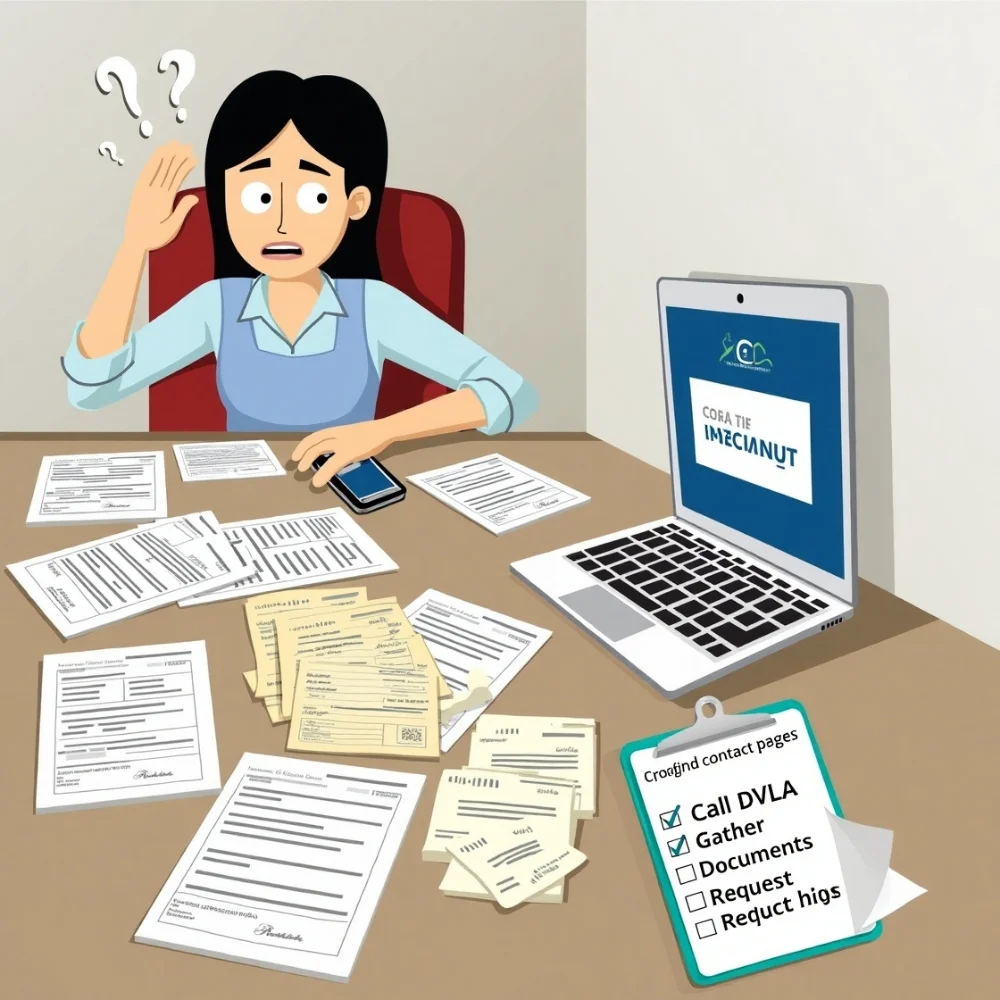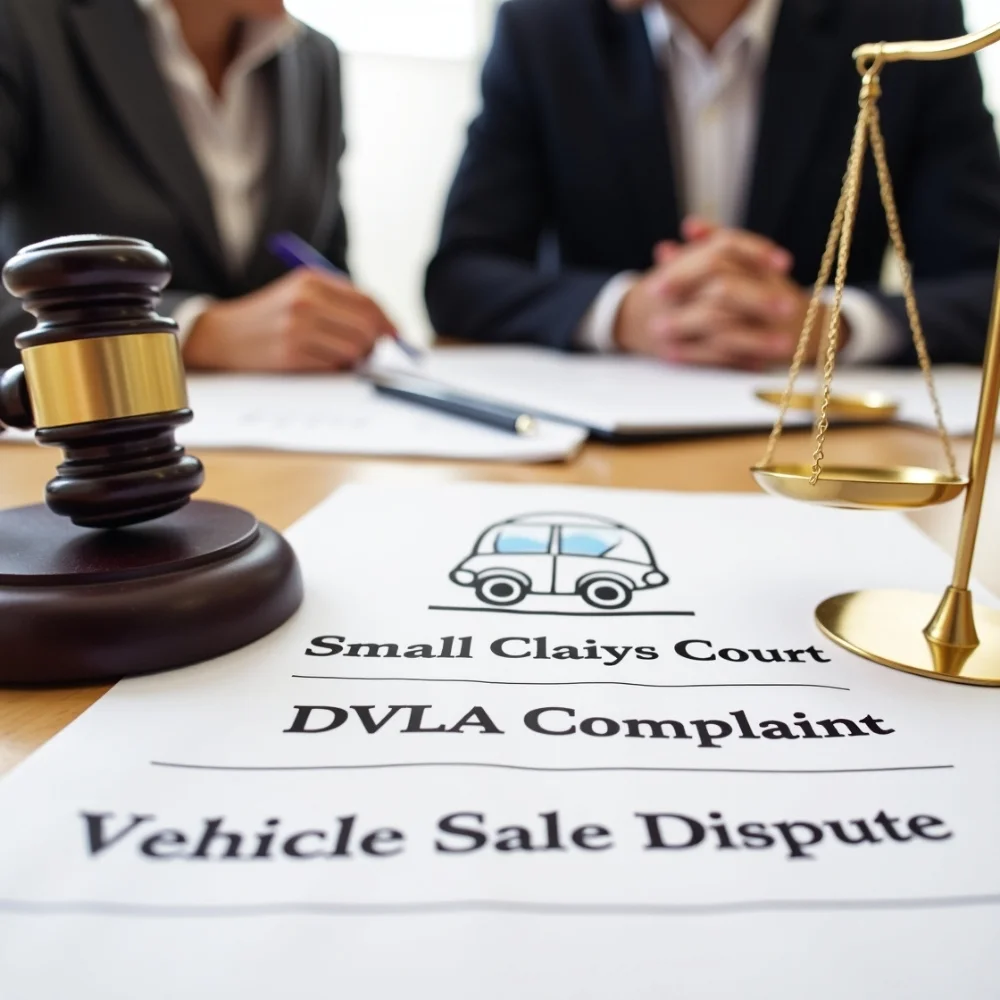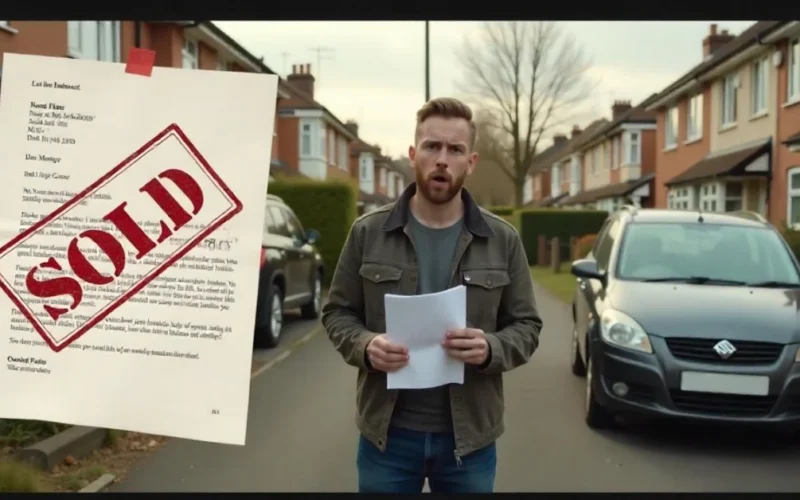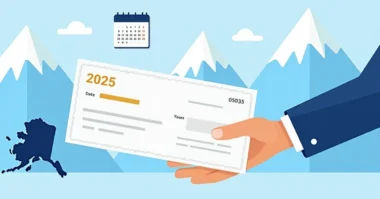Table of Contents
- Understanding the DVLA’s Role
- Can the DVLA Legally Sell Your Car?
- Signs Your Car Might Have Been Sold by DVLA
- Immediate Steps to Take if DVLA Sold Your Car Without Consent
- Mistakes in the DVLA System
- How to File a Complaint Against DVLA?
- Reclaiming Your Car or Compensation
- Legal Options Available to You
- How to Protect Yourself in the Future?
- Case Studies: Real Stories of DVLA Errors
- What If Your Car were cloned or misused?
- When the Police Are Involved?
- What Role Does the Ombudsman Play?
- Public Awareness and Media Help
- FAQs
- Conclusion
If you recently discovered that the DVLA sold your car without your permission, you’re likely frustrated, confused, and wondering what to do next. Don’t worry, you’re not alone, and there are clear steps you can take to fight back, reclaim what’s yours, and make sure it never happens again.
Understanding the DVLA’s Role
1. What Is the DVLA?
The DVLA (Driver and Vehicle Licensing Agency) is a government body in the UK responsible for maintaining a database of drivers and vehicles. They manage vehicle registrations, road tax records, driving licences, and more. Think of them as the admin team behind your car’s official identity.
2. The DVLA’s Authority Over Vehicle Records
The DVLA has the power to record ownership changes, issue fines, and even take action if laws are broken. However, they don’t physically take cars themselves. That’s usually done through local authorities, towing services, or agencies they work with, often when they believe the car is untaxed, abandoned, or in violation of regulations.
3. Common Reasons for DVLA Taking Action on a Vehicle
- The car is not taxed or declared off-road (SORN).
- There are unpaid fines or fees.
- The car was reported abandoned.
- DVLA records show ownership disputes.
Can the DVLA Legally Sell Your Car?
1. Legal Grounds for Vehicle Seizure or Sale
The DVLA itself doesn’t “sell” cars randomly. However, if your car is considered abandoned, untaxed, or linked to unpaid penalties, local councils or partner enforcement agencies can legally remove and auction it. This usually follows several notices.
2. Mistaken Identity or Clerical Errors
Sadly, errors happen. Sometimes, a DVLA clerical mistake causes a vehicle to be flagged incorrectly, especially if plates are cloned or an ownership transfer wasn’t processed properly. That’s when your car could be sold without your consent, even though you followed the rules.
3. Unpaid Fines, Taxes, or SORN Violations
If you haven’t paid your road tax or failed to declare the car off the road, it can trigger enforcement. Even a delay of a few days could start the process, especially if the car is parked in a public space.
Signs Your Car Might Have Been Sold by DVLA
1. Missing Vehicle from Driveway or Parking Area
You walk outside and your car is gone, but there’s no sign of theft. This is often the first clue that something went wrong.
2. Notifications You May Have Missed
The DVLA usually sends letters before action is taken. If you’ve moved and didn’t update your address, you may have missed key warnings. Always check your post and email connected to your DVLA record.
3. Contact from the New Owner or Towing Company
Sometimes, the person who bought your car at auction may reach out. Other times, a towing company leaves a note. If this happens, act immediately.
Immediate Steps to Take if DVLA Sold Your Car Without Consent

1. Stay Calm and Gather All Information
First things first, breathe. Start gathering:
- Proof of ownership (logbook/V5C)
- Tax and SORN records
- Any letters from the DVLA
- Insurance documents
2. Contact the DVLA Immediately
Call or email the DVLA explaining the situation. Keep a record of your contact, including names, times, and what was said.
3. Request a Full Record and Explanation
Ask for your vehicle’s official history and the sale reason. This helps you understand if it was a mistake or a legal action, and builds your case if needed.
Mistakes in the DVLA System
1. Address Mix-Ups with Vehicle Registration
Incorrect registration numbers or details can lead to someone else’s problems affecting you. Make sure your number plate hasn’t been cloned or misrecorded.
2. Issues with Previous Owner Transfers
If you bought the car recently, the DVLA may still have the previous owner listed. That can confuse tax or legal responsibility.
3. Clerical Errors Leading to Unlawful Action
Even something as simple as a tick in the wrong box can spiral into your car being sold. Always double-check confirmation letters and emails.
How to File a Complaint Against DVLA?
1. Step-by-Step DVLA Complaint Procedure
- Contact DVLA by phone or email first.
- If unresolved, file a formal complaint using their complaints form.
- Include all evidence and keep copies.
- Wait for their written response.
2. Useful Contacts and Departments
- DVLA Customer Service: 0300 790 6802
- DVLA Complaints Email: Use the web contact form
Driver and Vehicle Standards Agency (DVSA) for appeals
3. What to Expect After Filing a Complaint?
DVLA typically responds within 10 working days. If not, you can escalate to the Department for Transport or the Ombudsman.
Reclaiming Your Car or Compensation
1. Can You Get the Car Back?
It’s tough but not impossible. If your car hasn’t been auctioned or scrapped yet, you may be able to recover it by proving ownership and payment status.
2. When and How to Request Compensation?
If the DVLA made a mistake, you have the right to claim financial compensation. Send a formal letter or email with details, receipts, and losses incurred.
3. Dealing with the New “Owner” of the Car
Legally, if your car was wrongly sold, the DVLA may work with the buyer to return it. If they refuse, you might need to take legal action.
Legal Options Available to You

1. When to Seek Legal Advice?
If the DVLA refuses to admit fault or compensate you, it’s time to talk to a solicitor, especially one who understands motoring law.
2. Small Claims vs. Legal Action
You can use the small claims court for up to £10,000. For higher losses, you may need a formal court case.
3. Case Studies and Precedents
Past cases show that people have successfully sued the DVLA for wrongful sales, especially when the process wasn’t followed properly.
How to Protect Yourself in the Future?
1. Keeping DVLA Records Up-to-Date
Always notify the DVLA when you move or sell a car. Outdated addresses are one of the biggest causes of missed letters.
2. Using SORN Correctly
If you’re not driving your car, declare it off the road officially. It’s easy and can prevent legal trouble.
3. Double-Checking MOT and Tax Status Regularly
Use the GOV.UK Website to check your car’s tax, MOT, and registration status monthly, it only takes 2 minutes.
Case Studies: Real Stories of DVLA Errors
Case 1 – Sold Without Warning
Tom’s car was sold while he was overseas because letters went to an old address. He got compensation after filing complaints and going public.
Case 2 – Wrong Vehicle Taken
Lucy’s car was towed by mistake after a registration error flagged it as untaxed. DVLA admitted fault and paid for a rental car.
Case 3 – Car Mistaken for Abandoned
Mark’s parked car was reported abandoned by a neighbour. No letters reached him. The DVLA later returned the car and issued an apology.
What If Your Car were cloned or misused?
1. Understanding Car Cloning
This is when someone copies your number plate and uses it illegally, making it look like your car committed violations.
2. How It Affects DVLA Records?
DVLA may mistake the clone for your car, especially if enforcement cameras are involved.
3. Steps to Correct Misuse
Report cloning to the police, DVLA, and your insurer. Provide clear evidence, like CCTV or time-stamped images, to prove your innocence.
When the Police Are Involved?
1. Coordinating with Law Enforcement
Police can help trace your vehicle, confirm ownership, and investigate fraud if cloning or misreporting is involved.
2. Proving Ownership and Innocence
Keep logbooks, proof of tax/MOT, insurance, and photos of your car to help prove your case quickly.
3. Escalating Through Legal Channels
If police confirm DVLA acted wrongly, you can use their report in court or for your compensation claim.
What Role Does the Ombudsman Play?
1. When to Escalate to the Parliamentary Ombudsman?
If your complaint hits a dead end with DVLA, ask your MP to refer your case to the Parliamentary and Health Service Ombudsman.
2. How the Investigation Process Works?
The Ombudsman looks at how DVLA handled your case and whether they acted fairly. It’s an independent, unbiased review.
3. Potential Outcomes and Resolutions
If the Ombudsman finds DVLA at fault, they can order apologies, compensation, or corrective action.
Public Awareness and Media Help
1. Should You Go Public?
Sometimes, media pressure can help speed things up. Going public is useful when all other avenues have failed.
2. Reaching Out to Consumer Advocacy Groups
Groups like Citizens Advice or BBC Watchdog can help you raise your voice and get expert help.
3. Using Media to Pressure a Resolution
A simple post on social media or a local news tip-off can go a long way toward forcing action.
FAQs
1. Can DVLA take my car without notifying me?
They are supposed to send notifications, but if your address is outdated, you may miss them. Always keep your DVLA records updated.
2. What proof do I need to reclaim my car?
Logbook (V5C), tax history, SORN status, and insurance documents help prove ownership and payment status.
3. Is compensation guaranteed if the DVLA made a mistake?
It’s not automatic, but if you can prove fault, they may offer financial compensation.
4. How long does a complaint resolution usually take?
It can take 10–30 working days, depending on the complexity. Escalations take longer.
5. Can I sue the DVLA for damages or distress?
Yes, if they acted unlawfully or negligently, you may pursue legal action, especially if financial or emotional damage occurred.
Conclusion
Discovering that the DVLA sold your car without your consent can be upsetting, but it’s not the end of the road. From filing complaints to legal action and compensation, you have clear steps to follow. Stay calm, stay organised, and don’t be afraid to escalate if your rights were ignored. Mistakes happen, but with the right information, you can fix them.








